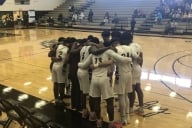You have /5 articles left.
Sign up for a free account or log in.
The post-9/11 GI Bill created the Yellow Ribbon Program to help veterans afford private colleges, whose costs aren't fully covered by the standard grants. But most veterans continue to attend less-selective institutions – for-profit and community colleges in particular.
Institutions such as Vassar College have had a hard time bringing veterans to campus – evidenced by the fact that only one of 2,400 enrolled students has served in the military. But next year, the college will have 10 times that many.
With help from the Posse Foundation, Vassar will enroll a cohort of 10 veterans each year – qualified students Posse is selecting from a 150-applicant pool of individuals who otherwise probably would not have gone to a college like Vassar. Posse will give the students a three- or four-week summer crash course in academic preparation and leadership development; then, Vassar will make sure the veterans have the support and resources they need to succeed – and stay -- on campus. Including a tuition-free education.
While Vassar President Catharine Bond Hill actually called Posse with the idea, it was a natural expansion for a program that traditionally has placed small “posses” of students from urban areas together on selective campuses where they might not thrive individually, said Posse’s executive director and founder, Deborah Bial. For such a focused program, this would be a new direction.
But when Hill called with the idea, Bial said, “I was – literally, I got chills, because the idea immediately made sense.” If the program works at Vassar, Bial will look to expand it to other campuses. But Bial and Hill both know that a stable, successful program will probably take some time. “There are going to be bumps along the way, and we’ll have to iron out the wrinkles,” Bial said.
A group of faculty, staff and administrators will keep tabs on the veterans’ unique needs – for example, housing for married students, which Vassar doesn’t currently have – and figure out how to address those issues. Hill expects to have a better idea of what that will entail once the final cohort of 10 is selected in December. They will arrive on campus in August.
“We talk a lot about bringing students from diverse backgrounds on campus,” Hill said. She notes that Vassar currently has the most diverse socioeconomically diverse student body in its history, with nearly 60 percent qualifying for need-based aid. “I think it adds to the education on campus to have students with different experiences, so this is completely consistent with what we have been doing more broadly…. It’s just diversifying with a different group that has not traditionally come to Vassar.”
But sometimes in college classrooms, veterans can be singled out or isolated because of their experiences at war. For example, one student ended up dropping out of a Baltimore community college after he was forced to undergo a psychological evaluation because of an essay he wrote. At Vassar, a college with many left-leaning and well-off individuals, awareness among faculty and students will be important.
Still, the diversification sentiment is one that Brian Hawthorne, a board member for the national Student Veterans of America who recently obtained his graduate degree from George Washington University, agrees with strongly.
“It’s important to have veterans in really any institution, but especially at elite colleges and universities,” Hawthorne said. “It’s still a shame that we have many leaders coming out of elite universities with no personal contact with veterans – like, ever. So the more that any university can do to try and address that is certainly a positive step – for that particular campus, but also for our nation.”
Small, elite colleges also often lack ROTC programs, Hawthorne noted, creating a sort of vacuum where no students even serve in the military after graduating, meaning there’s nobody coming back to campus to check in on student veteran initiatives, as General Colin Powell does at George Washington.
“It’s kind of a perfect storm of lack of veteran or military awareness,” Hawthorne said.
Hawthorne of course supports the Vassar idea (and offered the support and guidance of SVA for it or other colleges that want to do something similar). But it will indeed be important to have point people in place whom veterans can approach for help when they encounter issues – and these should be individuals from all across campus: registrar, admissions, housing, etc.; not just financial aid. Ideally, there would be one person in each department, so if multiple veterans have the same problem, that employee notices patterns.
As Bial also acknowledged, age is usually the biggest barrier for student veterans. In such close-quarter environments, Hawthorne said, the difference between a 19-year-old and a 23-year-old is pretty dramatic.
“It’s just important to remember that they’re just in another part of their life age-wise, so expecting that they’re all going to live on campus in freshman dorms, or that they’re going to be looking for stuff to do on Friday night and they’re going to go to a student association meeting, is probably a false assumption,” Hawthorne said. “They don’t need a building built, they need people to care – which is almost harder, right?”
As of now, Bial has 24 finalists, identified (not without difficulty) through community colleges, government organizations, transition centers, churches and other networks. One hundred fifty applicants doesn’t sound like a lot compared to the 15,000 nominations Posse got for its regular 640 slots at 44 partner institutions, but those who did apply are exceptional, she said.
“They all feel this is the experience of a lifetime, the opportunity of a lifetime, but they all have wildly different backgrounds,” Bial said.
The veterans’ leadership, teamwork abilities and academic potential are exemplary of the way Posse identifies collegiate merit, Bial said – the future students have more than just high test scores. And Vassar, a top institution with high graduation and job placement rates and a president and staff committed to making this work, is an ideal place for the Posse veterans program to launch.
“If you think about what they’ve been through in the service, it’s a natural fit because their skills and talents and experience should fit in well with this Posse concept,” Bial said. “They’re used to having each other’s backs; that’s how they put it.”








